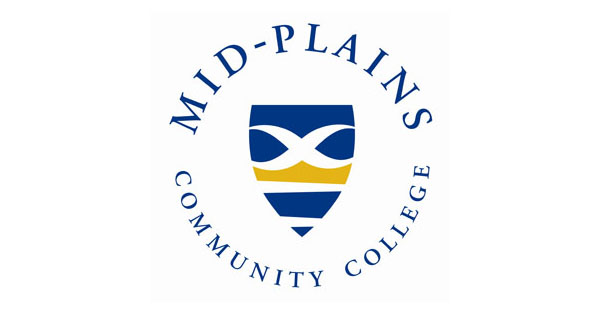MPCC proposed budget would leave levy the same

The proposed budget for Mid-Plains Community College would leave the levy unchanged for the 2021-22 fiscal year and lead to only a small increase in property taxes.
Under the proposal, which will be voted on Sept. 15, the levy would remain at 7.456 cents per $100 of valuation. Of that, two cents would go toward the capital fund and 5.456 cents would be for operations.
“We had been proposing a small increase to the total levy, but based on the valuations that came in, we plan to keep our levy the same as last year,” said Mike Steele, MPCC vice president of administrative services. “If someone has a $100,000 house, they will pay $74.56 in property taxes to Mid-Plains. Across the previous five years, our average levy has been 7.51 cents, and our property tax request has decreased by 1.84 percent.”
The taxes requested in the budget call for a 1.64 percent increase in property taxes for a total of $15,530,270. The past two years, MPCC’s total property tax asking has remained the same at $15,279,948.
“We were initially planning to increase our property tax request by two percent,” Steele said. “We were anticipating valuation increases of one percent, but they ended up at 1.64 percent. Instead of going to the two percent, we decided to leave the levy unchanged.”
In addition to the higher-than-expected valuations, a $2 per credit hour increase in tuition and a 2.74 percent boost in state aid are helping to keep MPCC’s property tax request low.
The boost in state aid was based on a three-year enrollment average. MPCC was the only community college in Nebraska to see growth in enrollment last year.
“We begin projecting operating revenues for the next year early in the fall,” Steele said. “We have to forecast enrollments to assist us in determining tuition increases, projections in state aid expenditure changes and, finally, property taxes. Our goal with the budget is always to break even.”
The college’s total operating budget for 2021-22 is $50,961,330. That’s compared to $48,985,242 during 2020-21.
“We wanted to decrease our operating expenses by about 3.5 percent, and with this current budget, they decrease by about 3.88 percent,” Steele said. “We have been running a deficit budget for the last several years because during the budgeting process we have to account for things that could happen but are not guaranteed to happen. We have been able to operate with a deficit because the cash reserves have been sufficient to carry additional expenditures beyond the revenues we have generated.”
MPCC is working to reduce the operating deficit budget by about a third each year.
“Over the next three years, we’re going to try to bring that general fund budget in line and eliminate that deficit fund budget we’ve been working from,” Steele said. “We will get there through a combination of increases in tuition revenue, state aid, property taxes and expenditure adjustments.”
MPCC stays at the two-cent mark with its capital fund so that it can maintain its approximately $170 million worth of facilities spread out across an 18-county service area.
“During 2013-14, the Nebraska legislature changed the capital levy from one cent to two cents, which we moved to across six budget years, so it wouldn’t be such a burden for taxpayers,” Steele said. “Most of the other colleges in the state went straight to two cents. Every time we increased the capital levy, we decreased the operating levy.”
The operating fund and capital fund are the only two funds at the college that are tax supported. There are also auxiliary and federal funds.
“Auxiliary and federal funds support themselves,” Steele said. “The majority of increased expenditures this year are in the federal funding bucket because of significant awards from CARES that we still haven’t spent. There are also several pending grant applications that we don’t know the status of at the time we publish the budget. That’s why we always budget for what could happen. We don’t want to have to go in and amend the budget. I’m not saying we will spend all the money, but we’re budgeting for what could be a possibility.”
The ability to use some of the funds will depend on supply availability due to the pandemic. Other funds, such as those designated through CARES, are typically reserved for specific items outlined in federal guidelines.
“Most of those are not operational in nature,” Steele said. “Of the outstanding funds - 40 percent are designated as economic aid for students. The promotion of safety and accessibility to resources and services for students is also a key component.”
MPCC will have a public budget hearing at 6:30 p.m. Sept. 15 in Room 202-204 of the W.W. Wood Building on the North Platte Community College North Campus, 1101 Halligan Drive, North Platte. That will be followed by the public hearing to set its final property tax request at 6:35 p.m. in the same location.

